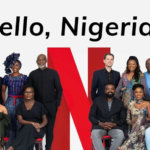“Tantalizers, a popular Nigerian franchised fast food chain is quite successful, its 2018 revenue was 3.5 billion naira ($10m) with 96 million naira ($274k) in pre-tax profits”
I took a business franchising course thought by Professor Burton Cohen; he was the Chief Franchise Officer at McDonald’s for decades and my take away from the class was that owning a franchise i.e. being a franchisee wasn’t that great of a business.
A Franchisor is the parent company that developed the company, brand and operating systems and has decided to sell the rights to franchise the business (think McDonald’s corporate). A Franchisee is the individual who buys the rights to sell the products or services, runs the day-to-day business and utilizes the already established business systems (think the owner of last McDonald’s location you visited).
Franchisee usually pays the following fees:
- Initial Franchise Fee: Most franchisors require a one-time fee to become a franchisee. The average franchise fee for a single unit is typically between $20k and $35k.
- Royalty Fee: This fee is usually a percentage of the gross revenue of the business, the average royalty percentage is 5 to 6%
- Marketing Fee: Franchisees often have to donate to a common advertising or marketing fund. As with royalty fees, this is usually a percentage of revenue in the 1 to 4% range
- Required Purchases of Products or Services: Many franchisors require that the franchisee purchase products or services from the franchisor. (e.g. All McDonald’s locations must purchase their cheese from a corporate McDonald’s supplier.)
We’ve been approached countless times by customers and acquaintances to franchise our Nigerian restaurant, Simi’s, to other cities. We usually take it as a compliment, however, I don’t think a Nigerian restaurant in the US is a good model for franchising. Below are attributes that constitute a good business to franchise:
- Business is easy to replicate: For us, I say yes
- Multiple locations are a critical advantage: Not really, since the Nigerian population in the US is significantly less than 1%, the target market is so small nationally, that having multiple locations is not that critical of an advantage compared to an American restaurant
- Not having total control of operations is acceptable: I will say No, it will be difficult to enforce strict processes and controls nationally because different Nigerian chefs and cooks have their different tastes and methods. Iya Risi’s jollof rice usually tastes different from Mama Kemi’s.
- Raw materials or ingredients are easy to source: Definitely No, our ingredients are not as easily accessible as American ingredients are because a lot of our food ingredients are imported
- Bonus Reason: Can I trust that Iya Risi will use our IT systems for 100% of transactions? Or is there a likelihood that she might collect cash or Zelle payments off the record to help reduce her royalty fee?
Bonus Information: Tantalizers, a popular Nigerian franchised fast food chain is quite successful, its 2018 revenue was 3.5 billion naira ($10m) with 96 million naira ($274k) in pre-tax profits.
If you would like to consider franchises to potentially buy, entrepreneur.com lists the Top Franchise Businesses to buy and the investment.

McDonald’s is the most popular franchise, however, to own a McDonald’s franchise:
- Each franchisee usually has a standard 20-year franchise license agreement
- Franchisees must make an initial investment of between $1 million and $2.2 million for construction and equipment expenses
- Franchisees must pay 40% of the startup costs with cash and other non-borrowed resources, while the rest can be financed
- McDonald’s charges a $45k franchisee fee and an ongoing monthly royalty fee of 4% of revenue
- Franchisees must also pay rent to corporate, which is a percentage of monthly sales (~10.7%)
Another franchise that has been on the rise is Chick-Fil-A:
- Chick-fil-A franchisees pay just $10k to open a new restaurant
- Chick-fil-A pays for all startup costs including real estate, restaurant construction, and equipment and then leases everything to its franchisees for an ongoing fee equal to 15% of sales plus 50% of pretax profit remaining
- The company prohibits most of its franchisees from opening multiple restaurants, which can limit franchisees’ potential profits
Based on the fee structures of both companies, it is obvious that McDonald’s targets high end franchise owners that can have multiple locations and hire managers to run operations, while Chick-fil-A targets the lower net worth owner that most likely will work at the location and put in hours just like any other staff. When I dissect both models, I still don’t see why I would want to own a franchise because the franchisor calls the shots and the franchisee is merely an store manager working at the location, only difference is the franchisee is actually taking on the financial risk as opposed to the franchisor.
Here are Pros and Cons of being a franchisor vs. a franchisee. Please let us know if you have any experience in the franchise space, it will be great to learn other benefits we currently are not recognizing.


